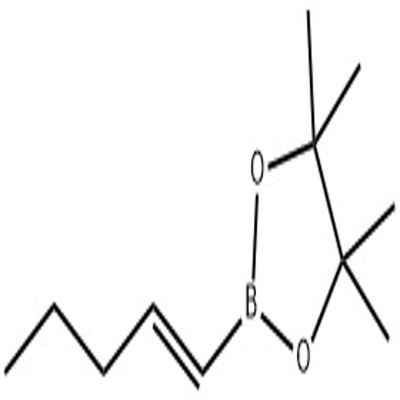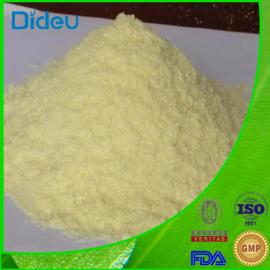-
Categories
-
Pharmaceutical Intermediates
-
Active Pharmaceutical Ingredients
-
Food Additives
- Industrial Coatings
- Agrochemicals
- Dyes and Pigments
- Surfactant
- Flavors and Fragrances
- Chemical Reagents
- Catalyst and Auxiliary
- Natural Products
- Inorganic Chemistry
-
Organic Chemistry
-
Biochemical Engineering
- Analytical Chemistry
- Cosmetic Ingredient
-
Pharmaceutical Intermediates
Promotion
ECHEMI Mall
Wholesale
Weekly Price
Exhibition
News
-
Trade Service
To date, the FDA has approved four new drugs manufactured continuously and one with 3D printing technology.
advanced technology used in the production of these new drugs has attracted wide attention from all walks of life.
recently, FDA Director Dr. Stephen M. Hahn and Deputy Director of Medical and Scientific Affairs, Dr. Anand Shah, jointly wrote on the FDA's official website about the importance of promoting advanced manufacturing.
noted that many 21st-century pharmaceutical products are still being manufactured using technology commonly used since the middle of the last century.
past few years, the FDA has been encouraging and promoting "advanced manufacturing."
advanced manufacturing here refers to emerging technologies used in the manufacture of pharmaceutical products.
FDA-approved advanced manufacturing methods for new drugs manufactured continuously and produced in 3D (data source: Resources, Pharmaceutical Mingkang content team watching) are applicable to different pharmaceutical product areas.
, for example, continuous manufacturing and other process enhancement methods can make the production of many essential drugs simplified and centralized.
, 3D printing can also help produce patient-specific medical devices.
digital and intelligent design and manufacturing processes are also expected to increase efficiency and reduce uncertainty.
background of the COVID-19 epidemic, with the increase of supply chain pressure, it is necessary to adopt adaptive manufacturing system to accelerate the production of medical countermeasure products, and advanced manufacturing reflects greater potential public health value.
FDA has established a strong regulatory base to support the development of advanced manufacturing, and in response to the COVID-19 pandemic, objectively require greater efforts to further promote the development of pharmaceutical products manufacturing.
Pharmaceutical Countermeasures Products (MCMs) (Source: Reference: References: 1) Pharmaceutical Mingkang content team drawing) fully supports advanced manufacturing FDA regulation covering two aspects of the innovation equation: development and manufacturing - development is about whether the product meets the appropriate statutory standards, manufacturing is about the production of high-quality products for widespread use.
FDA expects to approve about 40 gene therapies in the next few years, emerging technologies are needed to meet the needs of individualized therapies.
Emerging Technologies for Small Molecule Drugs (Source: Resources, Pharmaceutical Mingkang content team drawing) And Emerging Technologies for Biometrics (Source: References, Pharmaceutical Mingkangde Contents) Advanced manufacturing of emerging technologies for a wide range of products (data sources: Resources, Pharmaceutical Mingkang content team drawing) often brings innovation, efficiency, supply chain resiliency and broad benefits to public health.
Over the past decade, fdas have made strategic, forward-looking investments in people, policies, and processes, creating a clear regulatory path for innovators in the pharmaceutical, biological, and pharmaceutical industries.
, the FDA recognizes that innovators seeking to adopt advanced manufacturing technologies may be concerned about the technical and regulatory challenges of transitioning from existing platforms to other platforms.
this end, the FDA's Drug Review and Research Center (CDER) created theEmerging Technology Program, which has a team of professionals to support the development of process controls for continuous manufacturing of pharmaceuticals before submitting a drug application.
In order to provide targeted expertise in advanced manufacturing of biological products, the FDA's Center for Biological Products Evaluation and Research (CBER) has established the Advanced Technology Group, which cooperates with potential development agencies on issues such as technical considerations of gene therapy platform technologies.
FDA researchers completed 3D printing of several clinical and research tools for patient-specific drugs.
(Photo Source: Supplied) Second, the FDA recognizes that policies must be synchronized with innovation.
to accelerate the development of more innovative technologies, the FDA has developed a series of leapfrog guidance documents that the FDA uses to share preliminary ideas on emerging technologies with potential public health significance.
these guidance documents, including the FDA Center for Devices and Radiological Health (CDRH) 2017 Guide to Technical Considerations for Add-on Medical Devices, cover a wide range of technologies, including 3D printing.
as technology matures and commercializes, the FDA provides greater clarity on regulation, such as the 2019 CDER release of the Quality Considerations Guide for Continuous Manufacturing.
actively participate in public dialogue with the FDA to proactively identify and address potential barriers to the transition to advanced manufacturing.
, as a science-based regulator, the FDA supports research and partnerships to expand the knowledge base of advanced manufacturing.
, for example, the FDA has established a research fund under the 21st Century Cure Act to support research institutions in exploring key issues surrounding monitoring and controlled technologies around advanced manufacturing platforms.
To promote collaboration between the public, private and non-profit sectors, the FDA's Office of Chief Scientist (OCS) has launched a new program to advance regulatory science in the field of public health and has established partnerships with stakeholders such as American Makes, a national research organization for ingredient manufacturing innovation, BioFab USA, the National Institute for Biopharmaceutical Innovation, and a number of industry organizations and clinical associations.
the FDA's Office of Chief Scientist (OCS) has pioneered several in-agency research projects to help develop the regulatory expertise needed to evaluate advanced manufacturing technologies.
initiatives will enable the FDA to identify and address cross-cutting scientific, technical and regulatory challenges and opportunities for advanced manufacturing.
pharmaceutical manufacturing modernization is key to disaster prevention, in addition to the above-mentioned policy and program foundation, the FDA has taken a number of actions to support capacity specifically targeted at public health responses.
example, CDER has established a multi-year partnership with BARDA (Department of Defense's Advanced Biomedical Research and Development Administration) to explore how continuous manufacturing technology can increase the capacity of the United States to rapidly manufacture medical countermeasures products in emergency situations.
During the COVID-19 pandemic, the FDA's Office of Chief Scientist (OCS) and the Center for Device and Radiological Health (CDRH) helped develop memorandums of understanding between the FDA, the National Institutes of Health (NIH) and the Department of Veterans Affairs to facilitate the sharing of 3D-printed information and help support the manufacture of basic medical supplies such as personal protective equipment and medical device components.
The use of public-private sector cooperation (PPP) to facilitate the sharing of information on the manufacture of add-ons (3D printing) and to support the manufacture of basic medical supplies such as personal protective equipment and medical device components (data source: References, Pharmaceutical Mingkang content team drawing) to regulate scientific progress is not to make progress.
public health prepared for the test requires incentives and investment in technologies that the FDA has been promoting for years.
to strengthen our response, we need to truly recognize the importance of the capital and scientific expertise needed to build a more resilient and efficient platform from a holistic perspective.
to reduce the burden on innovators, the FDA is actively working to ensure international consistency in continuous manufacturing guidelines as part of the International Coordinating Committee for Pharmaceutical Products (ICH) Q13 proposal.
to promote initiatives that demonstrate significant improvements in safety, quality and efficiency by monitoring ongoing funding projects, ensuring that best practices are supported by research that is kept up to date.
FDA will continue to host forums, participate in national and international seminars on scientific issues and work with stakeholders to facilitate the exchange of best practices and innovative ideas among stakeholders.
pandemic is inherently unpredictable, so manufacturing methods must be adaptable.
manufacturing provides an efficient way to improve supply chain security and response capabilities in crisis situations.
regulatory base will enable the industry to continue to implement the necessary manufacturing technology improvements to better serve public health.
References: . . . . . . . . . . . . . . . . . . What are Medical Systems? Feb 12, 2020. Retrieved Feb 14, 2020 from FDA. Advanced Manufacturing. Aug 3, 2020. Retrieved Aug 6, 2020 from FDA CDER. Emerging Technology Program. Oct 10, 2019. Retrieved Aug 6, 2020 from FDA CBER. CBER Advanced Technologies Team (CATT). Jun 27, 2019. Retrieved Aug 6, 2020 from FDA CDER. Quality State for Continuous Manufacturing. Feb, 2019. Retrieved Feb 23, 2019 from FDA. Impact Story: Regulatory Science is United U.S. Drug Product Manufacturing. Feb 5, 2019. Retrieved Aug 6, 2020 from FDA, CDER. Development of Emerging Technology Applications for Pharmaceutical Innovation and Guidance for Industry. Sept, 2017. Retrieved Aug 6, 2020 from Douglas B. Hausner, Christine M. V. Moore. Continuous Manufacturing Current Status. June, 2018. Retrieved Aug 6, 2020 from FDA, CDRH, CBER. Technical Developments for Additive Manufactured Medical Devices, Guidance for Industry and Food and Drug Administration Staff. Dec 5, 2017. Retrieved Dec 12, 2017 from Ahmed Zidan. CDER Researchers Explore the Promise and Potential of 3D Printed Pharmaceuticals. Dec 11, 2017. Retrieved Dec 16, 2017 from FDA. SPRITAM (levetiracetam) Tablets. May 27, 2016. Retrieved Aug 11, 2020 from Stephen M. Hahn, Anand Shah. Investing in Advanced Manufacturing to Support Public Health Preparedness. Aug 3, 2020. Retrieved Aug 4, 2020 from FDA. 3D Printing in FDA's Rapid Response to COVID-19. Aug 3, 2020. Retrieved Aug 4, 2020 from The Drug Ming Kant Content Team. The brief box contains micropharmaceuticals - the next hot spot in the pharmaceutical industry? Nov 30, 2019. Retrieved Nov 30, 2019 from the public number of WeChat.







